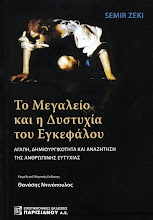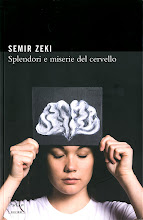The Cognitive V meeting in Marmaris, Turkey, organized by Professor Oğuz Tanridağ, had an unusual element, a daily recital.
Now there is nothing unusual about that. Many meetings organize a musical recital to entertain attendees and speakers and perhaps provide a pleasant distraction after an intellectually demanding day.
What was unusual about the Marmaris meeting was the timing of the recital – first thing in the morning, before the lectures and seminars.
This is an ingenious idea. There are many good reasons for listening to music before listening to, or delivering, lectures. They provide, first of all, an inspiration, which is always a good thing. But standards in music are very high and, one hopes, that these very high standards cross boundaries to instill in the rest of us a desire to achieve high standards too. When it comes to giving lectures, very few - or perhaps none - begin to approach the high standards of musical performers. The ums and ahs with which so many of us incessantly infect our lectures, the occasional or sometimes serially wrong order of slides, the film clips that do not function adequately, the excess of slides which we skip because we did not prepare according to the time allotted to us…all these, or their equivalents, would be intolerable in any musical performance. Performers would be booed off the stage for far lesser transgressions than that, as many eminent singers have discovered.
But there is more to music than that. I often listen to a symphonic work before preparing and giving a lecture and learn a lot from it (in preparing my Marmaris lecture and before delivering it, I listened to Beethoven’s Triple Concerto). A symphonic work has, after all, a structure, it has a theme which is developed and recapitulated, or there are variations on a theme, tempi that have to be integrated into the structure, changes in emphasis – all these teach one a lesson in how to deliver a lecture even if one never achieves the high standards of musical performances.
Of course, great artists themselves often fail the high standards that they set themselves, even if we are not always aware of their shortcomings, as we are of obviously faulty lectures. Herbert von Karajan was once asked if his performances, which gave pleasure to so many, gave him true satisfaction. He replied that the performances after which he could say, “This time I got it right” could be counted on the fingers of one hand.
So maybe the idea of having recitals before having the lectures was a pleasant – and highly effective – way of reminding the speakers, musically, to maintain high standards. And it worked very well. It is an ingenious idea that other conference organizers might consider adopting.
As an aside, one of the many reasons for choosing Beethoven’s Triple Concerto before my lecture is that it is beautiful but not in the least emotional, at least to me. Beauty without emotion…now there’s a subject for a future blog.









 Contact us
Contact us
No comments:
Post a Comment